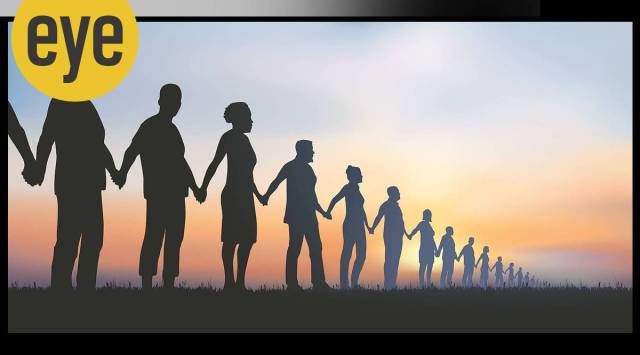- India
- International
Missing the woods for the trees
When it comes to mental health, are we asking the wrong questions and looking for solutions in the wrong places?
 If you are seeking psychiatric help or therapy then remember to look for professionals who are respectful, can work with you collaboratively, and do not see you as a passive recipient of their expertise. (Source: Getty images)
If you are seeking psychiatric help or therapy then remember to look for professionals who are respectful, can work with you collaboratively, and do not see you as a passive recipient of their expertise. (Source: Getty images)There are some dangerous and pervasive ideas in mental health that are gaining traction. They have become the so-called truths, particularly when they are backed by Big Data research and powerful names in the field. As mental-health professionals, it becomes important for us to pause and critique these ideas to ensure we do not end up becoming its teeth and claws, causing more harm than helping the people we serve.
Are we asking the wrong questions and looking for solutions in the wrong places?
To draw a parallel, suppose during the peak of Delhi’s pollution, we only focused on treating children’s lung problems without looking at the polluted air that was inflicting damage. No amount of chest specialists, medication, nebulising would help us get anywhere. Where and what is the “silent killer” (words used to describe the snowballing mental-health problem)? Is it residing in the children’s lungs or in the belching industries, crop burning, heavy traffic and the negligent governance?
Why is it that despite the growing number of mental-health professionals in our country, mental-health struggles are growing exponentially?
Why is that despite the pharmaceutical industries pumping out new, “groundbreaking medicines” and their consumption being on an all-time high, numbers of people with crippling depression, anxiety and suicide rates are escalating alarmingly? Could our oppressive notions of success and worthiness for our children be the polluted air that is slowly choking them? Let me explain with Rhea’s story — a 21-year-old referred to me for “depression with suicidal tendencies”. Getting admission in a liberal arts college was, as she described to me, “like a breath of fresh air” as there was open discussion and questioning of dominant discourses, gender politics and sexuality. It took her a little time to realise that it was just “all hot air” as girls who expressed themselves sexually were immediately branded as “sluts”. One night, after a college party, a male friend sexually assaulted her. When she tried to confront him the next day, he dismissed it as, “You know you wanted it as much as I did”. The college community did not offer her much support and there was an implicit message: “What do you expect when you behave like this?”

How much does the diagnosis of “depression with suicidal tendencies” locate the problem in the person, invisibilising issues of social justice?
A typical course of “treatment” for Rhea would be antidepressants, possibly counselling on how to manage her thoughts, feelings and behaviours. How much is the problem internalised by the person as “something wrong with me?”, “I am not worthy enough” when she is not actually the problem. It is the inequalities in our social structures, the way different discriminations (gender, disability, caste, class, religion, sexuality etc.) intersect to create marginalisation.
How long can we keep obscuring the role of neo-liberal capitalism as the “silent killer”?
Our children and young people are like products being shunted on the assembly line of our industrial society. They have to follow the pace, keep up with the quality grading. Otherwise, they are quickly shunted out as defective; not good enough for climbing the illusionary ladder of success. We are recruiting our children into believing that there is one right way to live their life from an early age; otherwise they are labelled as “failures.” At 25, Rahim had been convinced by these metrics of success and productivity that he was a “failure,”. And why? Because as he put it, “I am useless — I am not reaching targets at work.” He was struggling with anxiety, sleepless nights as he was convinced that he was going to lose his job which paid for his family’s survival.
How has social media, the beauty/fitness/diet industry led to this constant self-surveillance and self-policing?
Radha started cutting herself at the age of 13 as she was being body shamed in school for being “fat”. By the time she was 15 years old, anorexia had set in and her parents were extremely concerned as she was starving herself and needed hospitalisation to get her condition stable. As Radha told me, “Every girl in my class lives with internalised body shame. We can’t compete with all the flawless, toned bodies we see on Instagram 24×7”.
Do we diagnose Rhea, Rahim and Radha or the toxic cultural landscape? Do we find faults in them or in the social injustices being experienced as mental-health problems and how they end up being internalised, invisibilised and personalised?
These questions are not to invite despair but to bring in a sense of critique to a lot of taken-for-granted ideas that need to be unpacked and exposed for the damage they cause to our young ones.
From individual suffering to collective action
If you resonate with these stories and if your struggles are similar, I would like to invite you to explore what steps you can take in your healing. When is the last time you took an action that you feel okay or even good about? What made you decide to do that? What does it say about what you really value? What possibilities could there be for your future if you carry on in this direction? Would you say that in some ways this would be an act of resistance to the judgements society has been pushing you into? Who would not be surprised by this action and how could you support each other in this path?
Find out if there are any peer social support groups that you could participate in. The ethics of peer support is that it works on helping each other, learning, moving towards hope, possibilities and solidarity. I know of many LGBTQIA+ folks who have found belonging and acceptance in various online communities.
If you are seeking psychiatric help or therapy then remember to look for professionals who are respectful, can work with you collaboratively, and do not see you as a passive recipient of their expertise. Check if they are able to flip the gaze back onto the society’s normative judgements and not locate the problem in you.
As mental-health professionals we need to ask ourselves how we can come out of our therapy rooms and speak up against the injustices and focus on building a collective. How can we not end up missing the wood for the trees? How can we move away from being complicit to society’s normative judgements and instead acknowledge and support acts of resistance? How can we receive young people’s stories of suffering and engage them in ways that not only address their individual hardships, but also invite their agency to stand up for social justice and take action?
And most of all, be their allies so that through this unique solidarity and collective acts of resistance, we can create a more just world.
(Shelja Sen is a narrative therapist, writer, co-founder, Children First. In this column, she curates the know-how of the children and the youth she works with. She can be reached at shelja.sen@childrenfirstindia.com)
Apr 18: Latest News
- 01
- 02
- 03
- 04
- 05






































